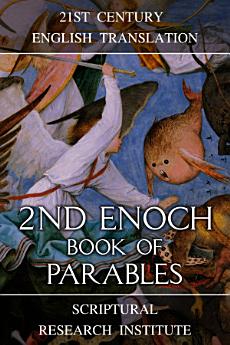2nd Enoch: Book of Parables
ກ່ຽວກັບປຶ້ມ e-book ນີ້
The origin of the Book of Parables is widely debated, with scholars generally ignoring the history of the text within the Beta-Israel community, and instead claiming it was a Christian-era book, written anywhere between 50 and 270 AD. There are several reasons why it is assumed to be a Christian era text, even though it is clearly not a Christian text, but these 'pieces of evidence' have all been manufactured by the translators, who assumed it was a Christian era text, and interpreted the text using Christian terminology. The most obvious example it the phrase 'son of man' generally used throughout the Book of Parables, which is seen as a reference to Jesus Christ. Simply reading the text proves the text has nothing to do with Jesus Christ, and although it could be read as a prophetic text, was prophesying the flood of Noah, not the coming of the messiah, like most Messianic Jewish works. The person being referenced in the Book of Parables as the 'son of man' is quite obviously Seth, the patriarch of all the humans that survived the flood. The Hebrew ben-'adam (בן–אדם) which is translated as 'son of man' is also 'son of Adam,' which Seth it introduced as in the open lines. The only way to translate the meaningless term 'son of man' is to impose a Christian framework on the book, forcing it to in the end 'look Christian' even if there is nothing Christian about it.











